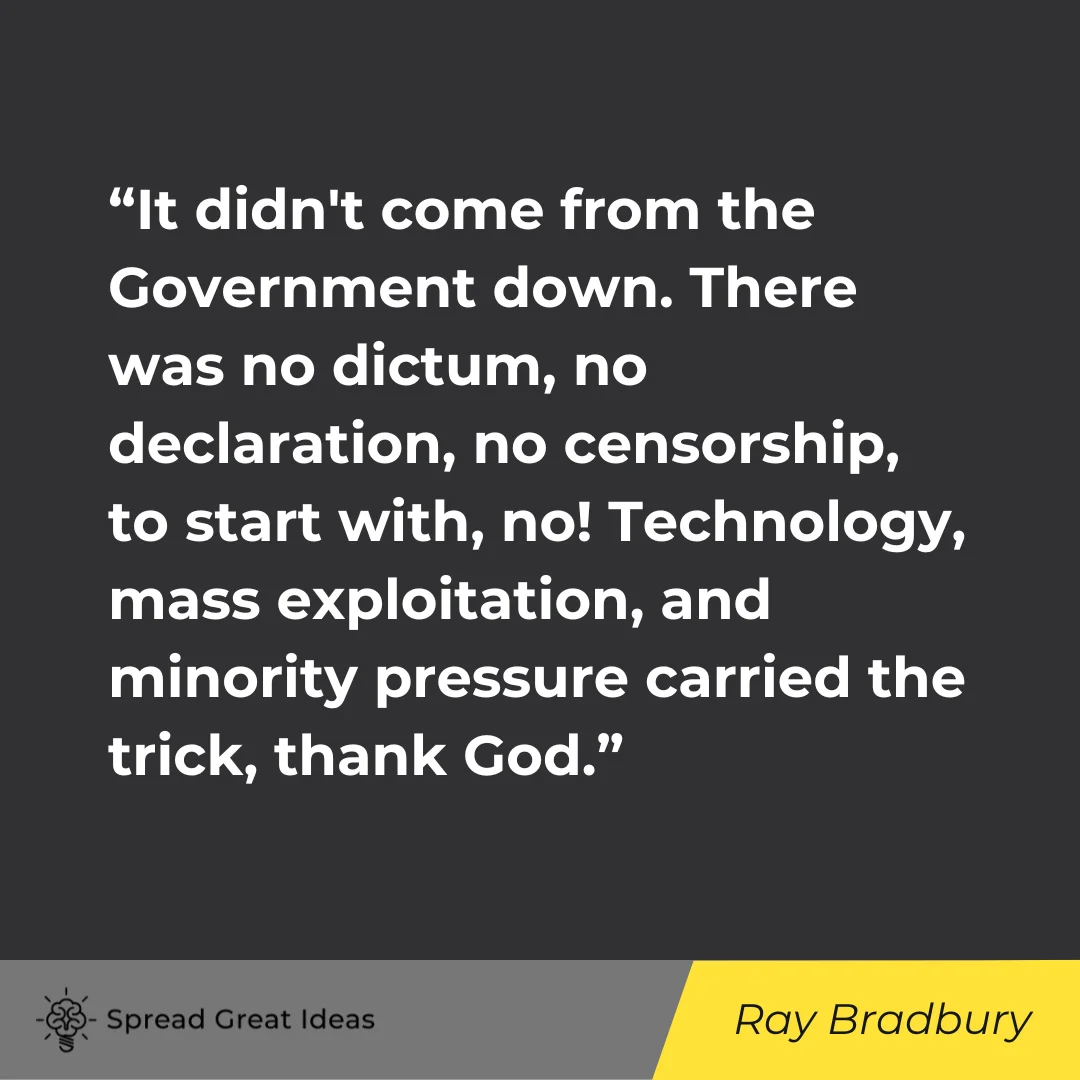Table of Contents

The pros of social media are abundant. It facilitates connection and community building, easily allowing you to connect with other like-minded individuals. It also allows information to spread rapidly, and there is an educational component to much of what is posted on Instagram, TikTok, Twitter, and Facebook.
However, the pros of social media, upon closer examination, are surface-level and pale in comparison to the many cons of social media.
Firstly, studies have shown that people who use social media as their main source of information are less engaged and less knowledgeable. It’s no secret that part of what makes social media so addictive is because the algorithms are designed to feed our cognitive biases.
We seek confirmation of our ideas and choices and social media tailors itself to do just this based off of what we like, comment, and share. This brings us to the second issue with social media.
Social media feeds our envy. While connecting with others like ourselves we often fall into the trap of comparing ourselves to others. Envy is a natural emotion, but too much of it can lead to hostility, resentfulness, and depression.
How can you combat these drawbacks of social media? One way is to limit your intake of it. Studies have suggested that about 20 to 40 minutes a day of social media facilitates a feeling of “happiness.”
With that being said we’ve put together this collection of social media quotes to help you disconnect and live more in the present.
Quotes About Technology, Social Media, and Over-Connectedness
Ralph Waldo Emerson
“There are many things of which a wise man might wish to be ignorant.”
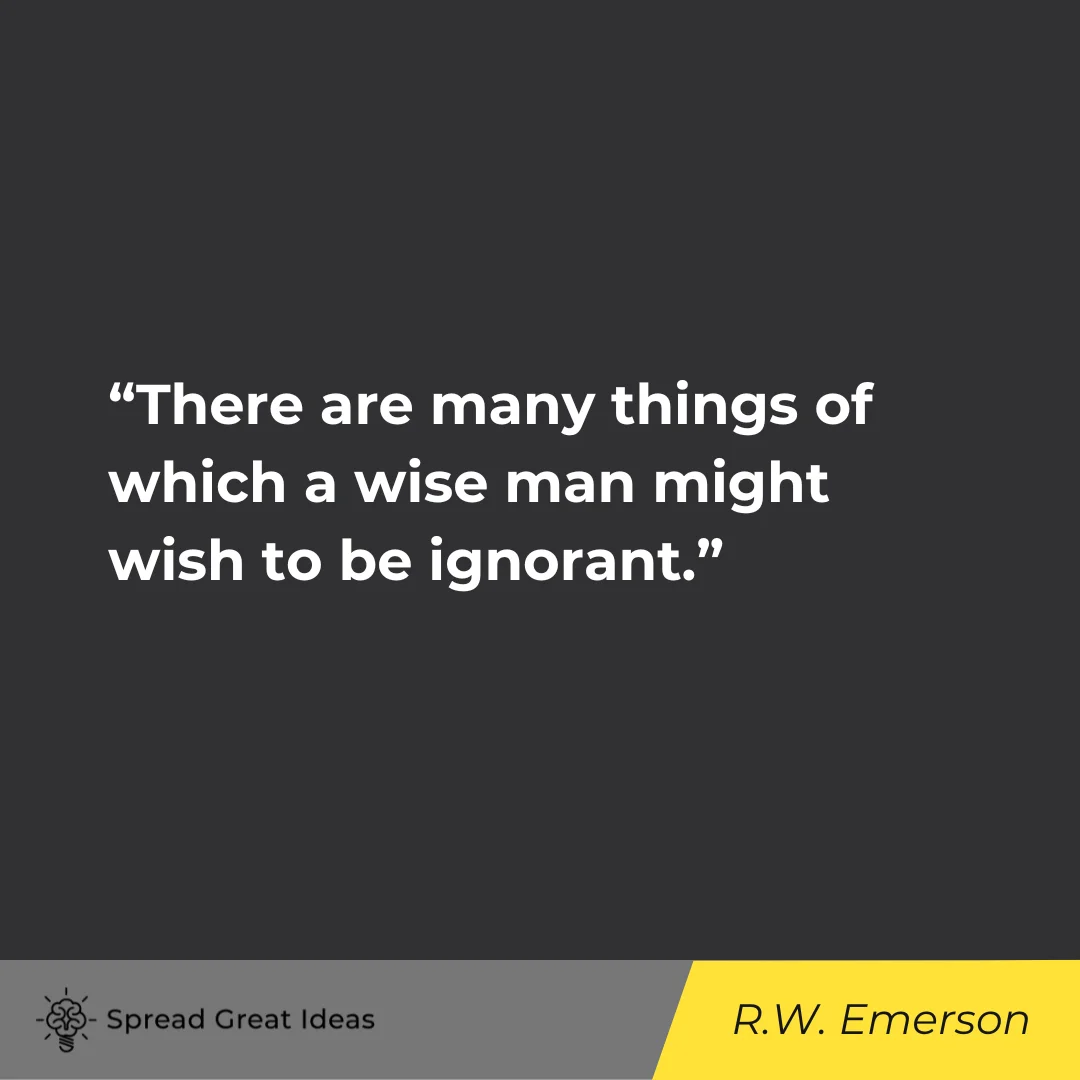
Karl Lagerfeld
“I send notes. I’m not a chambermaid whom you can ring at every moment. Today, you know, most people act like they work at a switchboard in a hotel.”

“Electronic masturbation.”
– Karl Lagerfeld, speaking about selfies
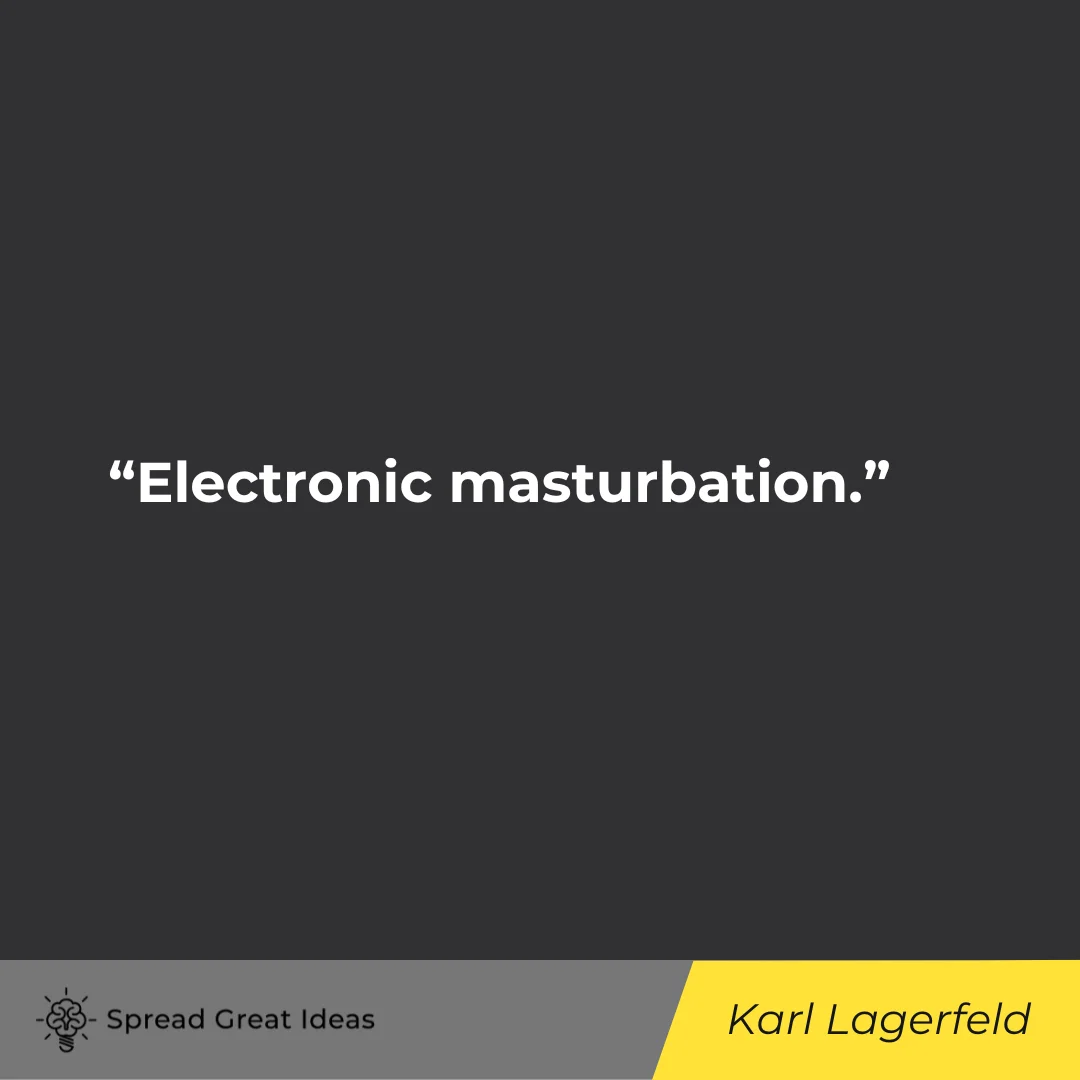
Harper Lee
“Now, 75 years, in an abundant society where people have laptops, cell phones, iPods, and minds like empty rooms, I still plod along with books.”
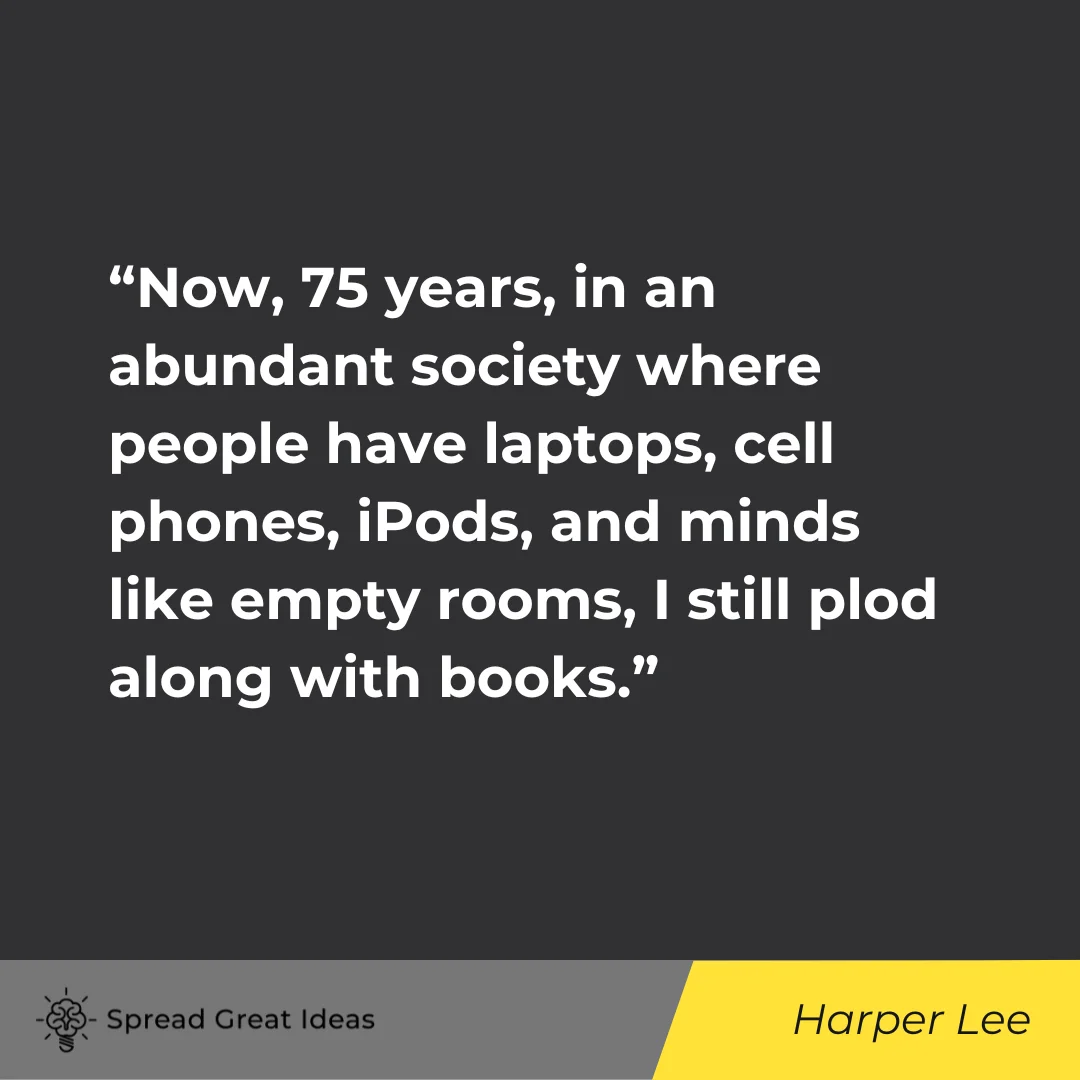
T.S. Eliot
“Distracted from distraction by distraction.”
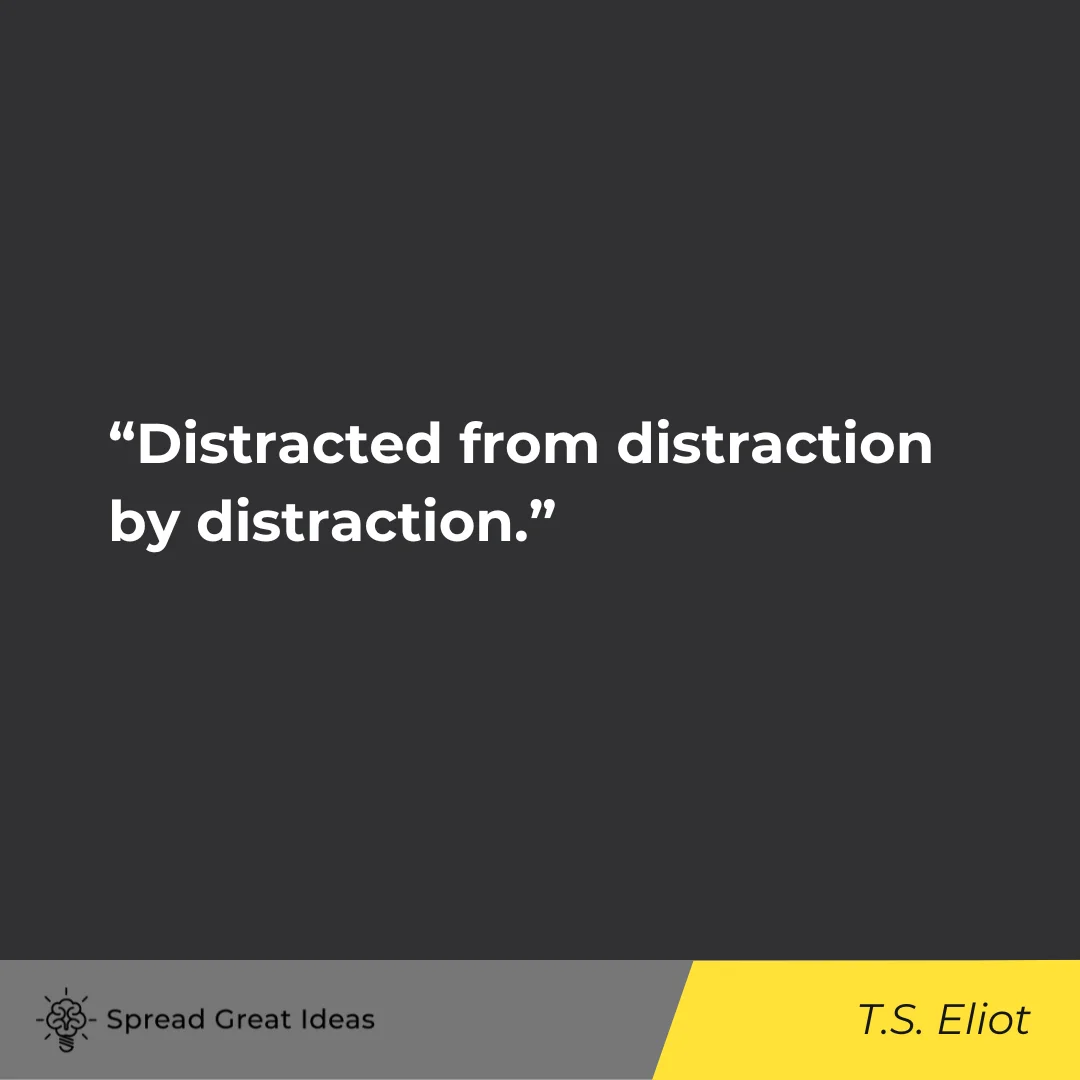
Marc Maron
“It amazes me that we are all on Twitter and Facebook. By ‘we’ I mean adults. We’re adults, right? But emotionally we’re a culture of seven-year-olds. Have you ever had that moment when are you updating your status and you realize that every status update is just a variation on a single request: ‘Would someone please acknowledge me?’”
– Marc Maron, Attempting Normal
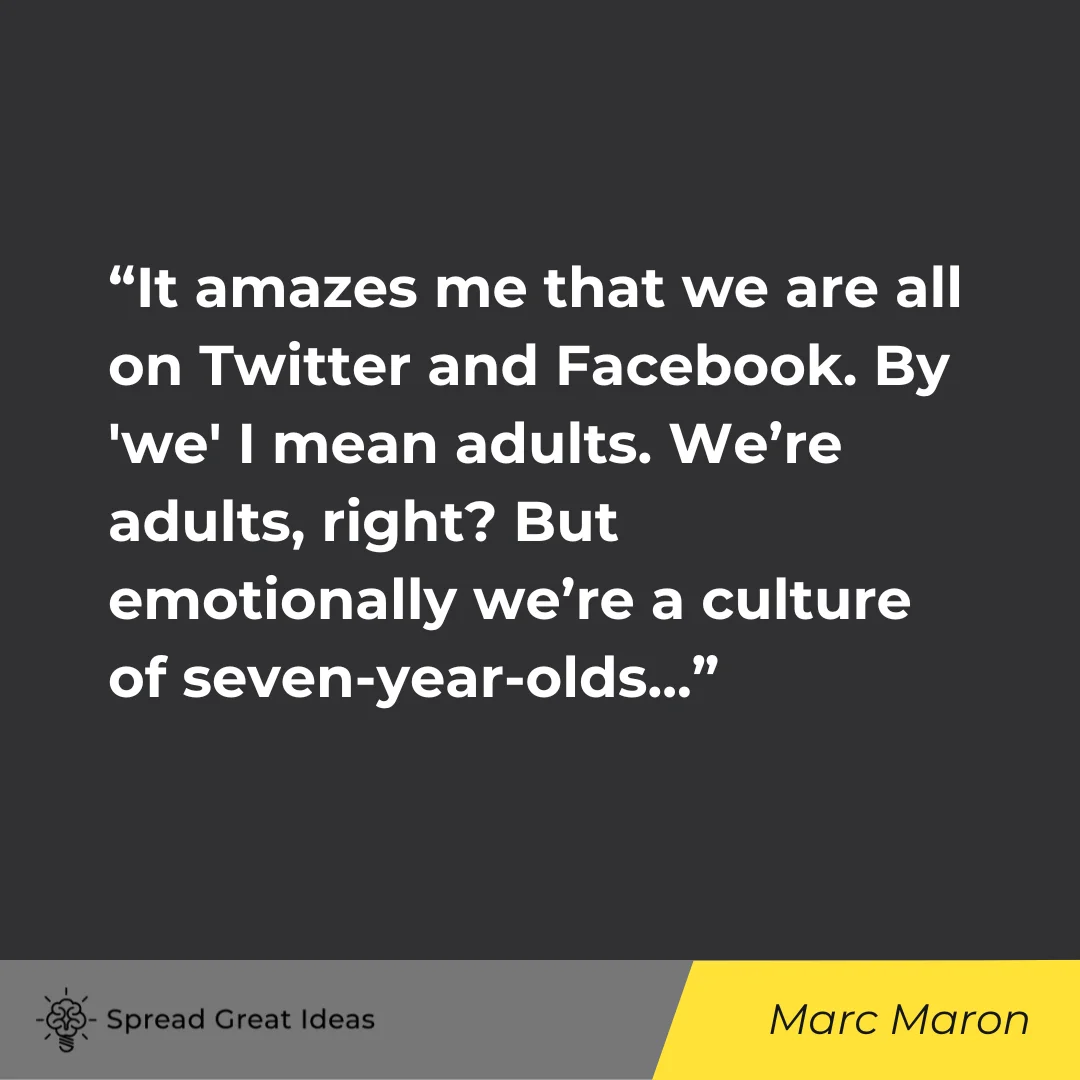
Mark Manson
“People get addicted to feeling offended all the time because it gives them a high; being self-righteous and morally superior feels good.”
– Mark Manson,The Subtle Art of Not Giving a F*ck: A Counterintuitive Approach to Living a Good Life
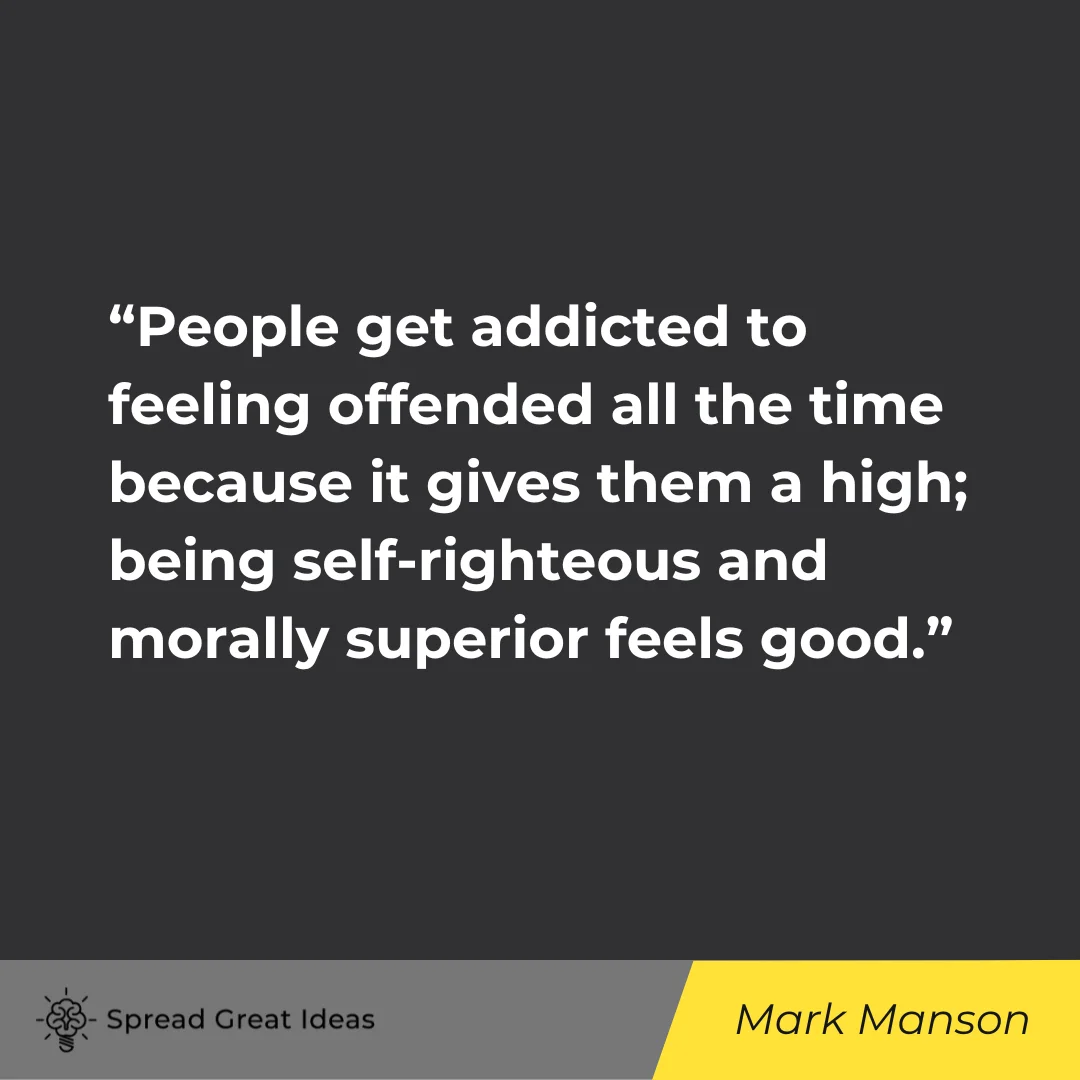
Shannon L. Alder
“An open Facebook page is simply a psychiatric dry erase board that screams, “Look at me. I am insecure. I need your reaction to what I am doing, but you’re not cool enough to be my friend. Therefore, I will just pray you see this because the approval of God is not all I need.”
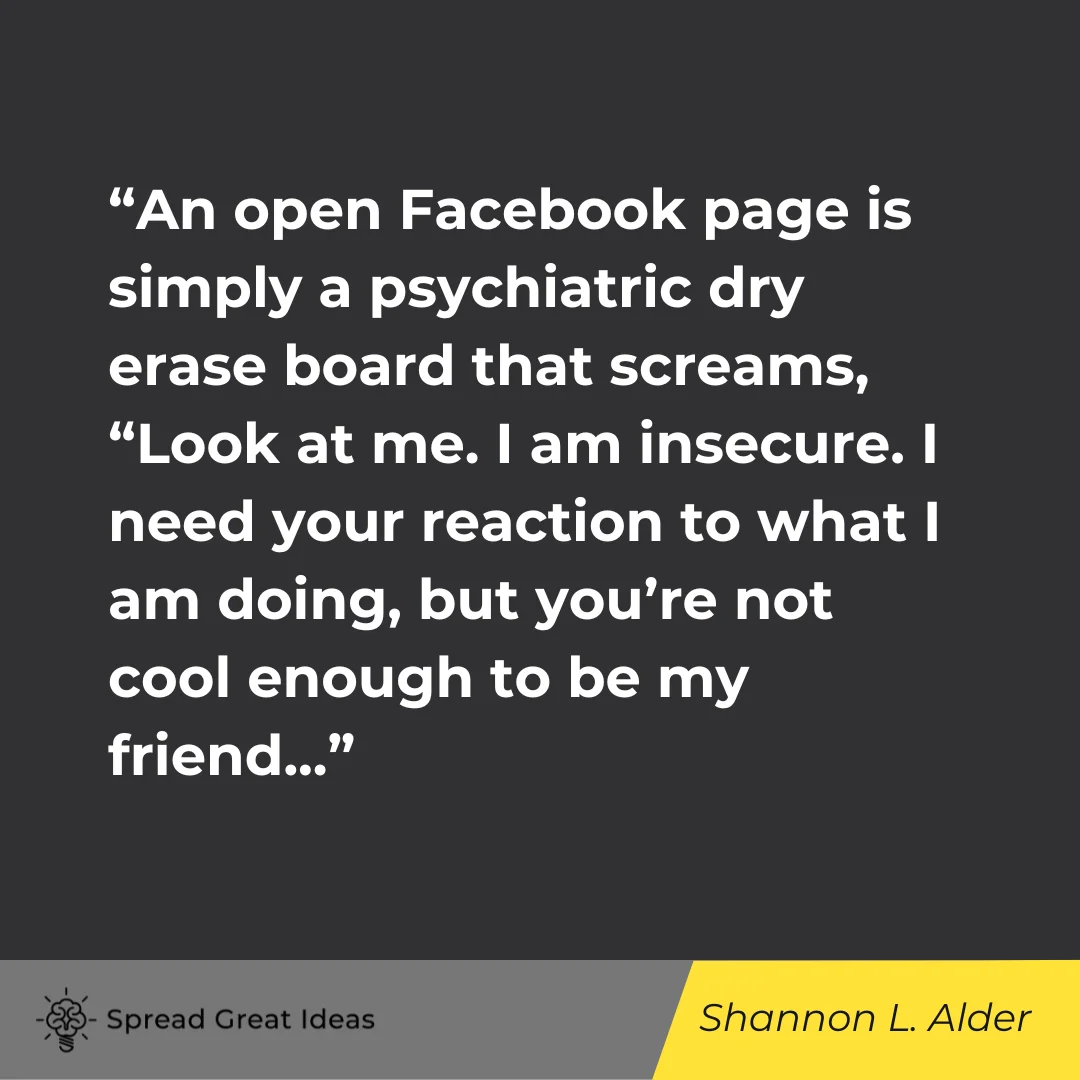
Alain de Botton
“We are continuously challenged to discover new works of culture—and, in the process, we don’t allow any one of them to assume a weight in our minds.”
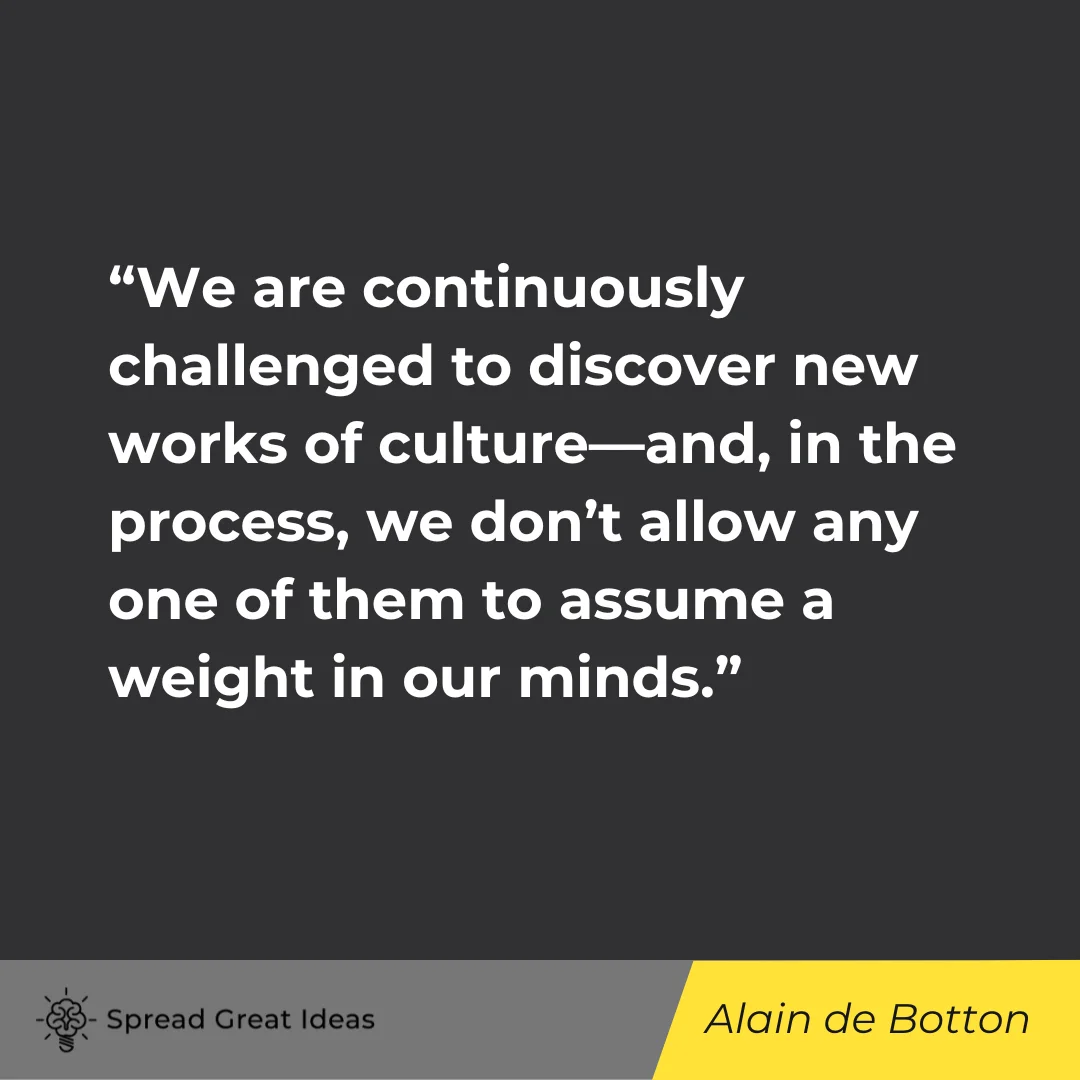
Carl Sagan
“We’ve arranged a civilization in which most crucial elements profoundly depend on science and technology. We have also arranged things so that almost no one understands science and technology. This is a prescription for disaster.”
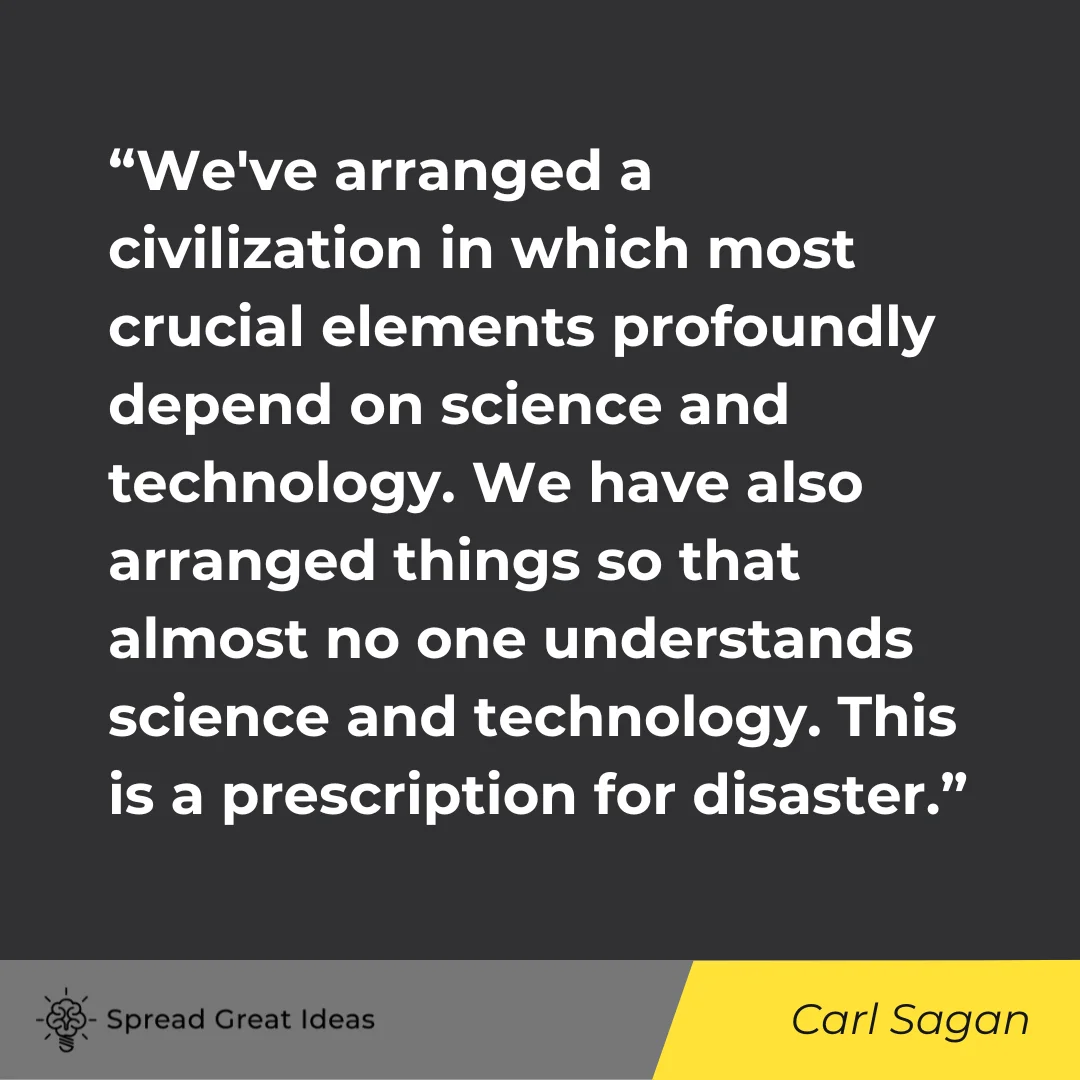
“Many of the dangers we face indeed arise from science and technology—but, more fundamentally, because we have become powerful without becoming commensurately wise. The world-altering powers that technology has delivered into our hands now require a degree of consideration and foresight that has never before been asked of us.”
– Carl Sagan, Pale Blue Dot: A Vision of the Human Future in Space
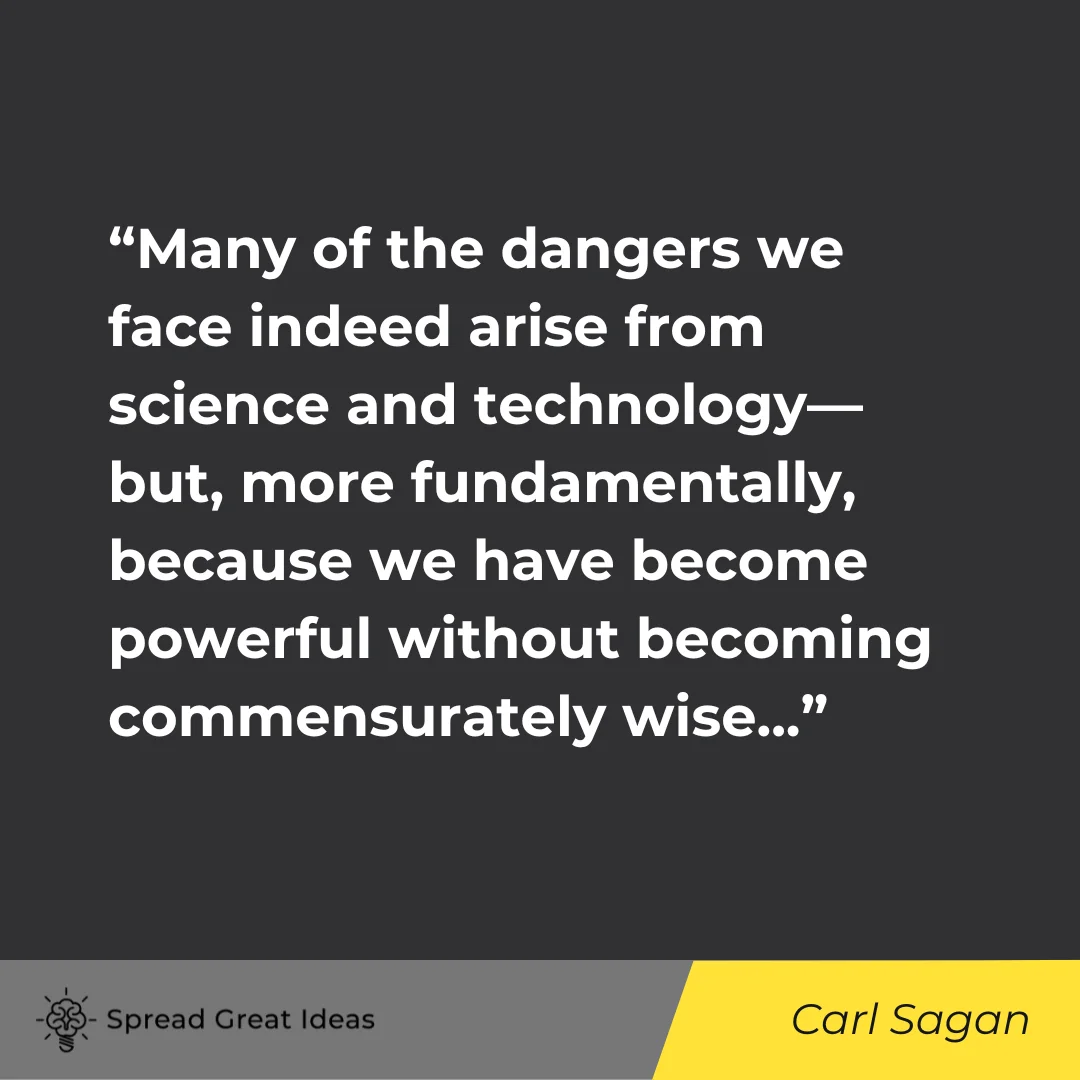
Albert Einstein
“I believe that the abominable deterioration of ethical standards stems primarily from the mechanization and depersonalization of our lives, a disastrous byproduct of science and technology. Nostra culpa!”
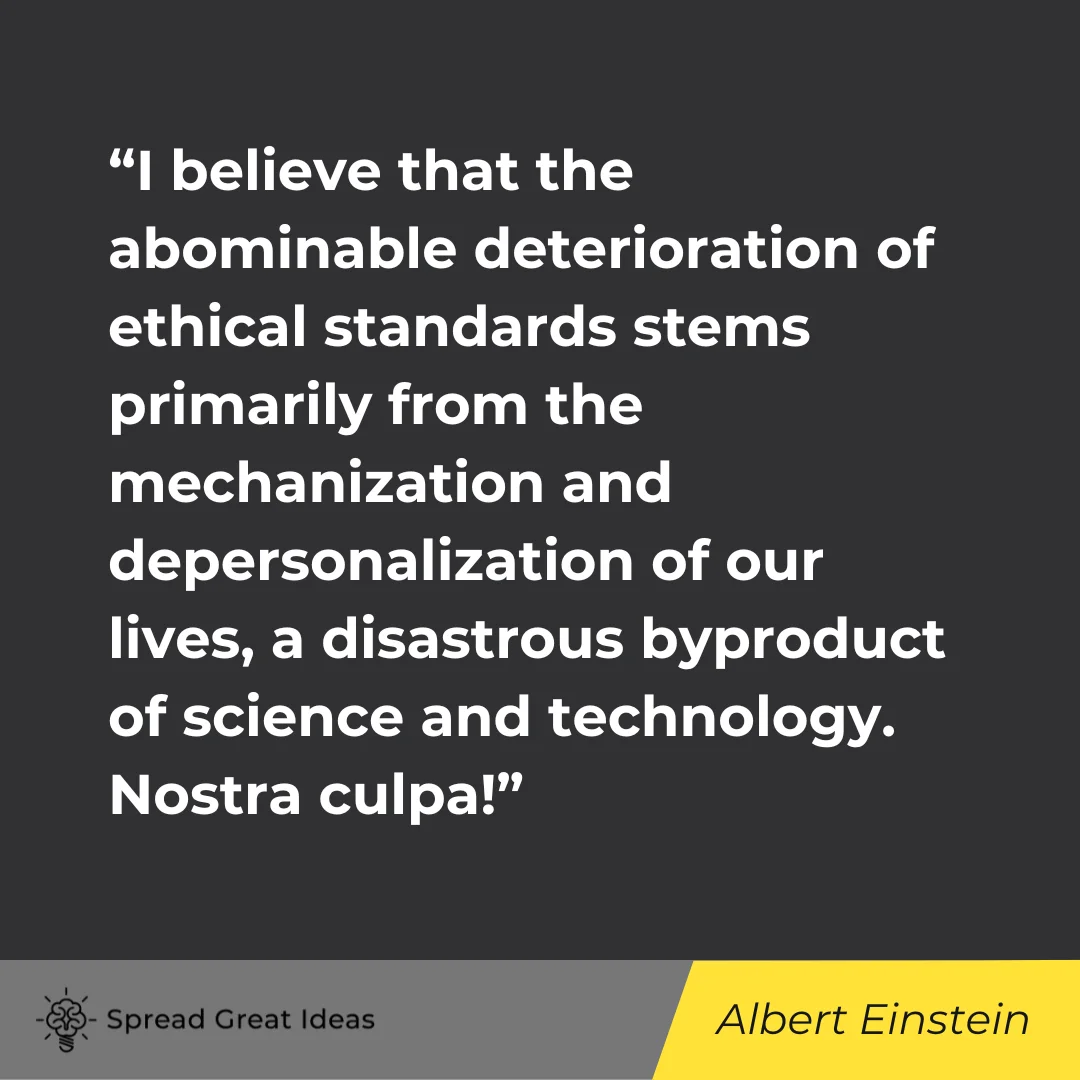
Philip K. Dick
“There will come a time when it isn’t ‘They’re spying on me through my phone’ anymore. Eventually, it will be ‘My phone is spying on me’.”
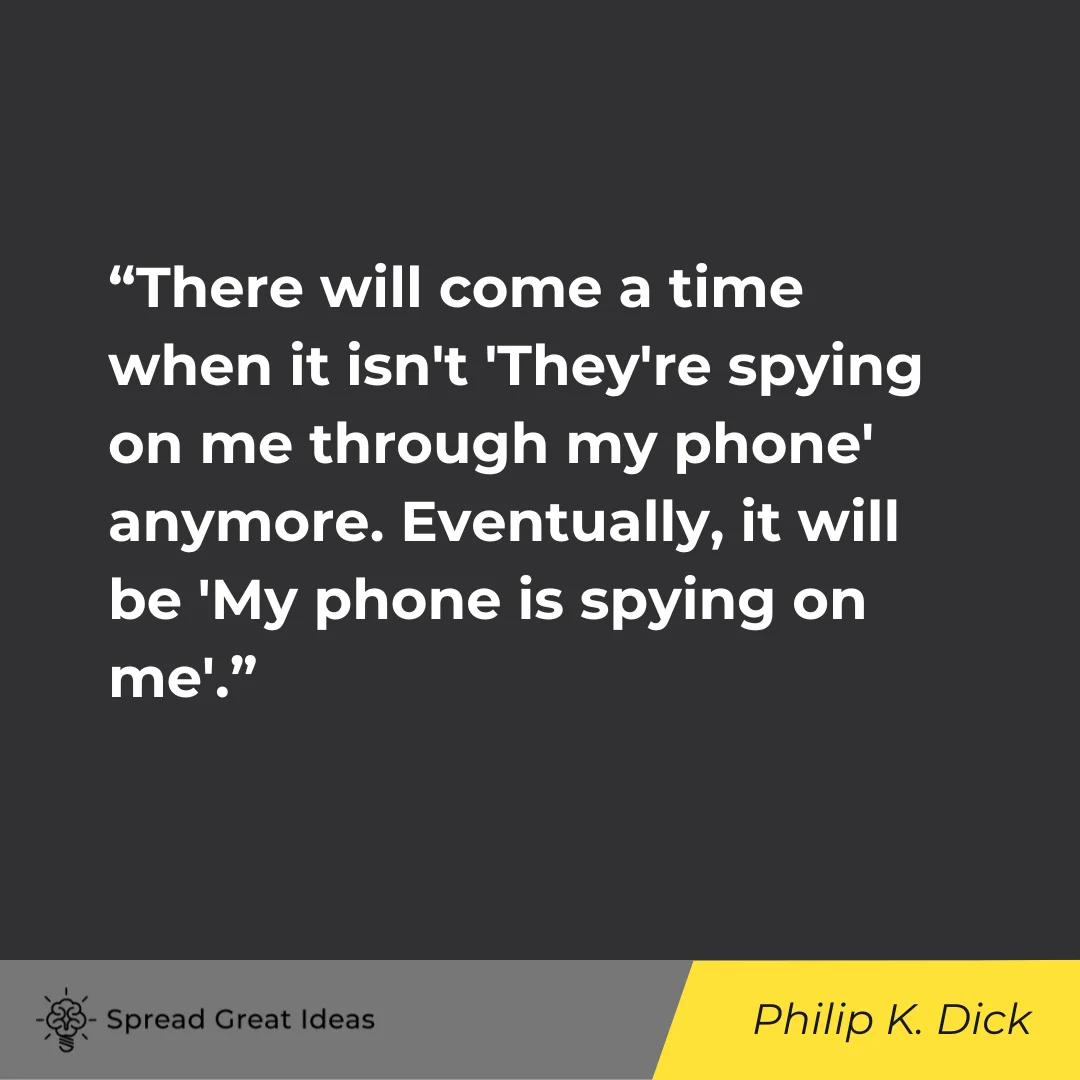
Arthur C. Clarke
“Before you become too entranced with gorgeous gadgets and mesmerizing video displays, let me remind you that information is not knowledge, knowledge is not wisdom, and wisdom is not foresight. Each grows out of the other, and we need them all.”
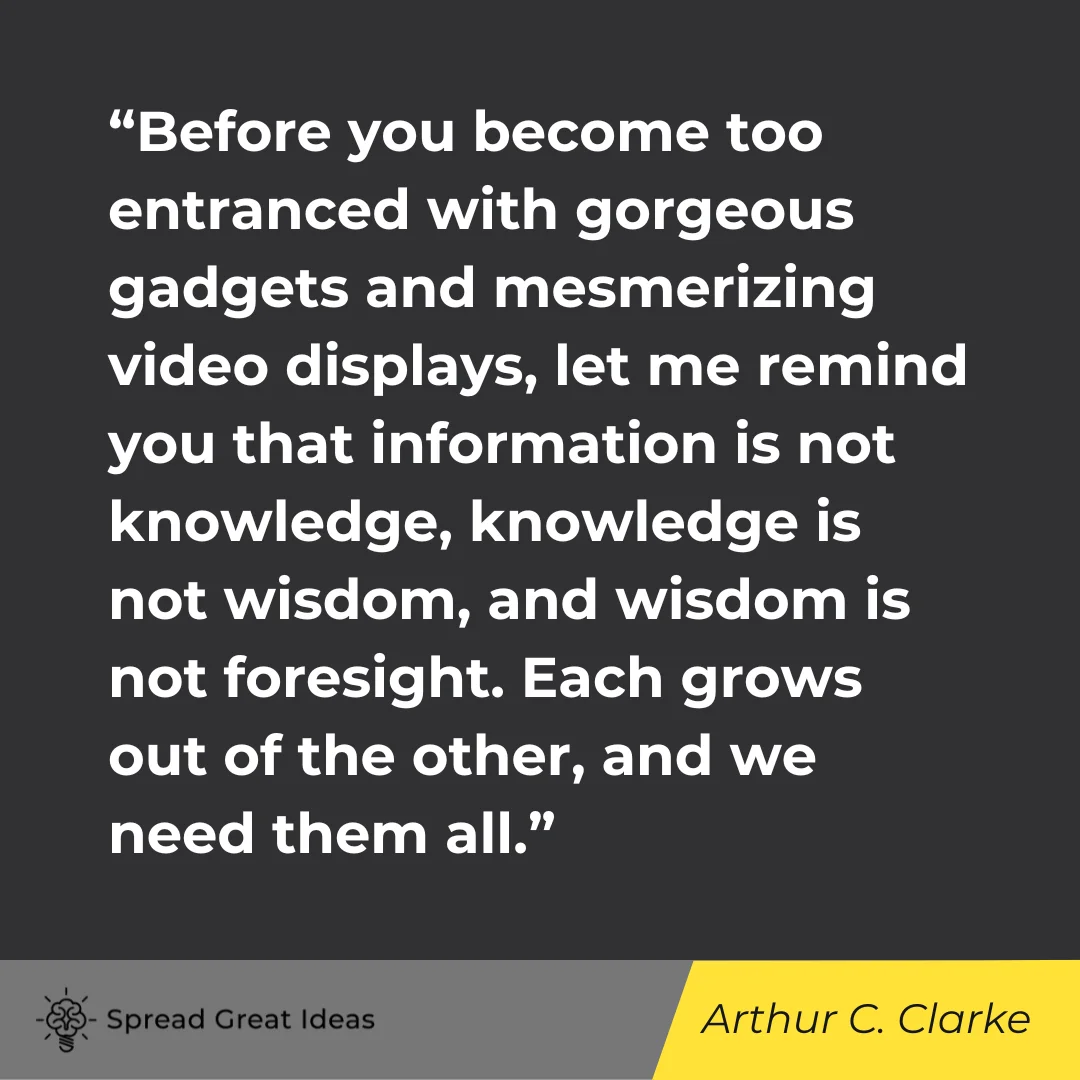
Pablo Picasso
“Computers are useless. They can only give you answers.”
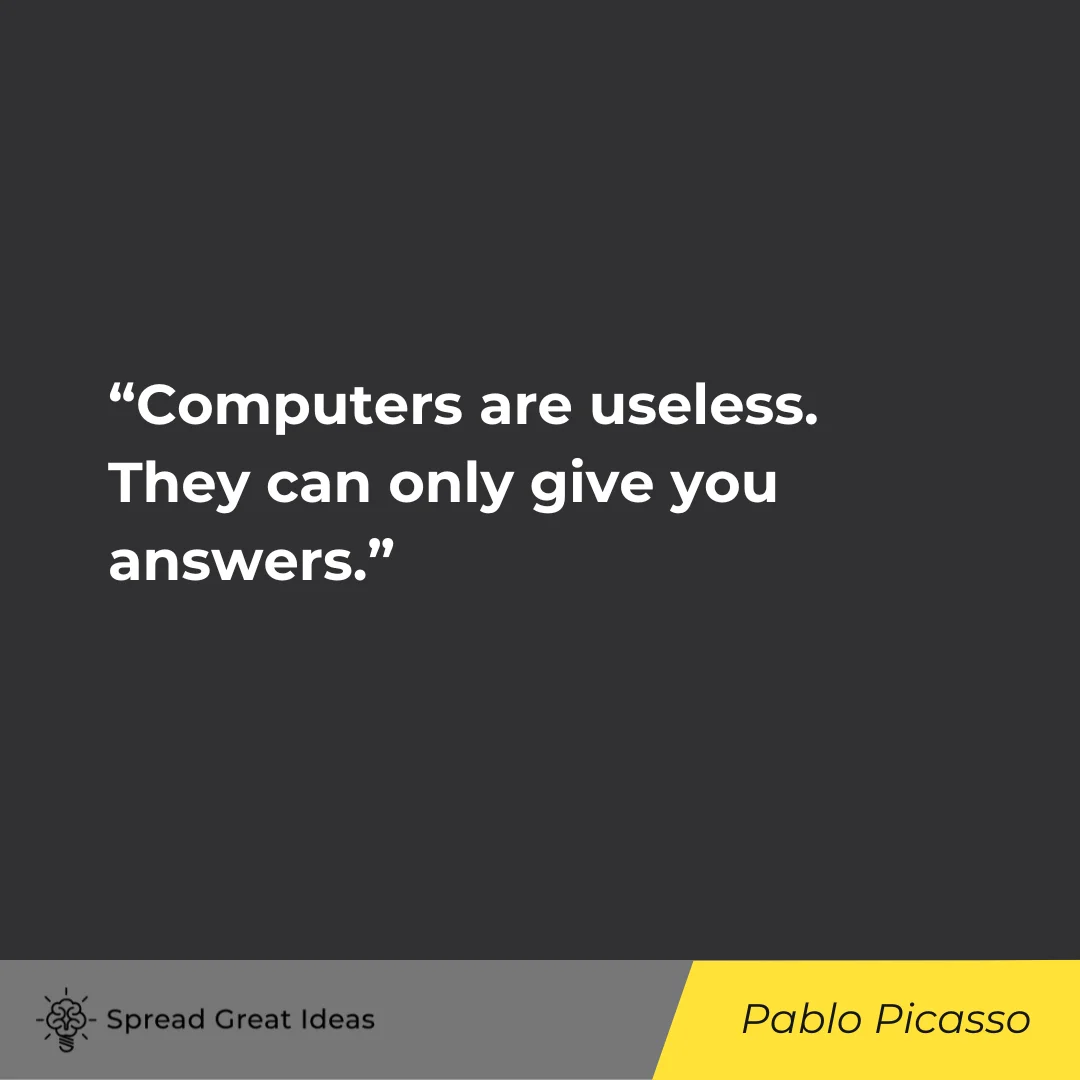
Aldous Huxley
“Technological progress has merely provided us with more efficient means for going backwards.”
– Aldous Huxley,Ends and Means
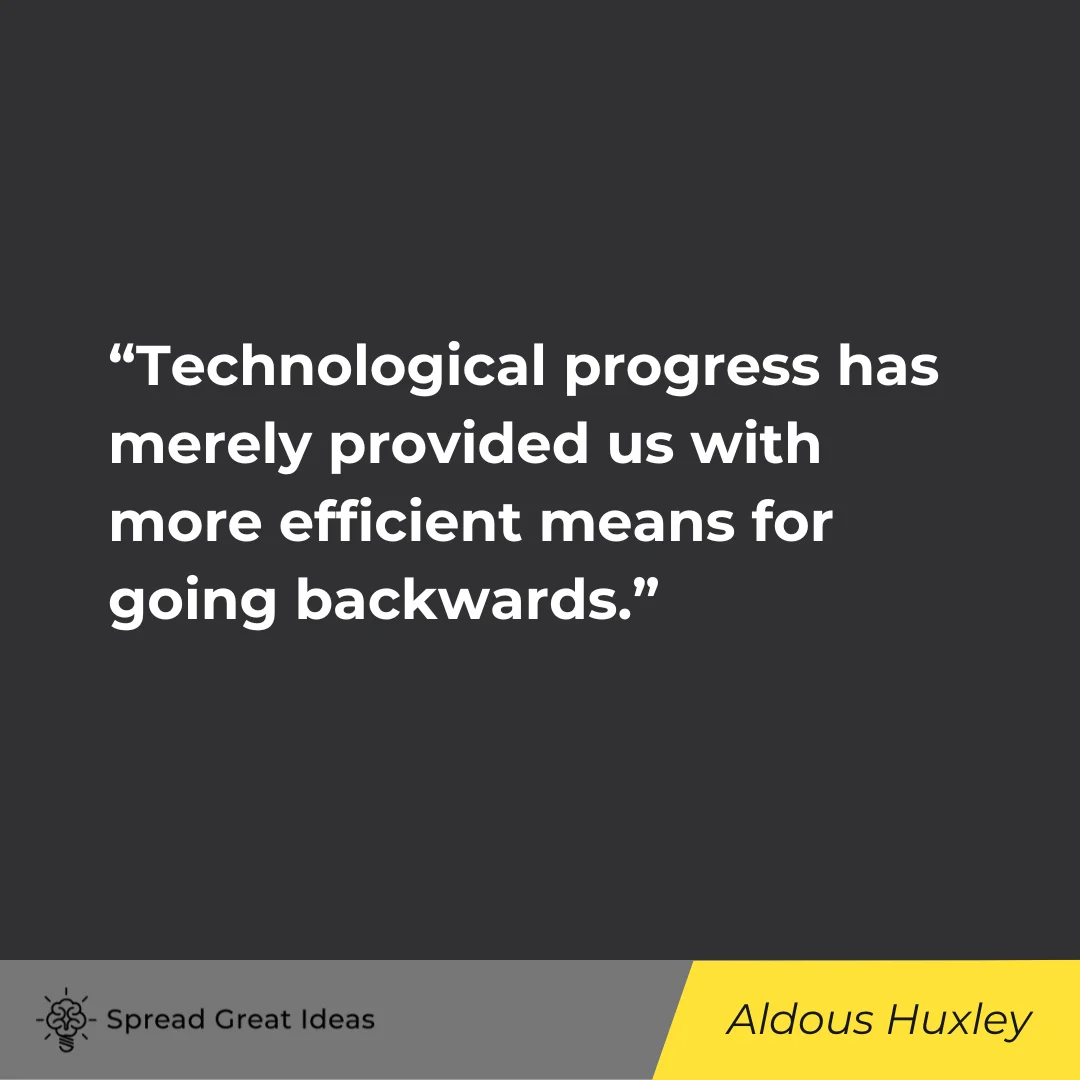
Henri Charrière
“We have too much technological progress, life is too hectic, and our society has only one goal: to invent still more technological marvels to make life even easier and better. The craving for every new scientific discovery breeds a hunger for greater comfort and the constant struggle to achieve it. All that kills the soul, kills compassion, understanding, nobility.”
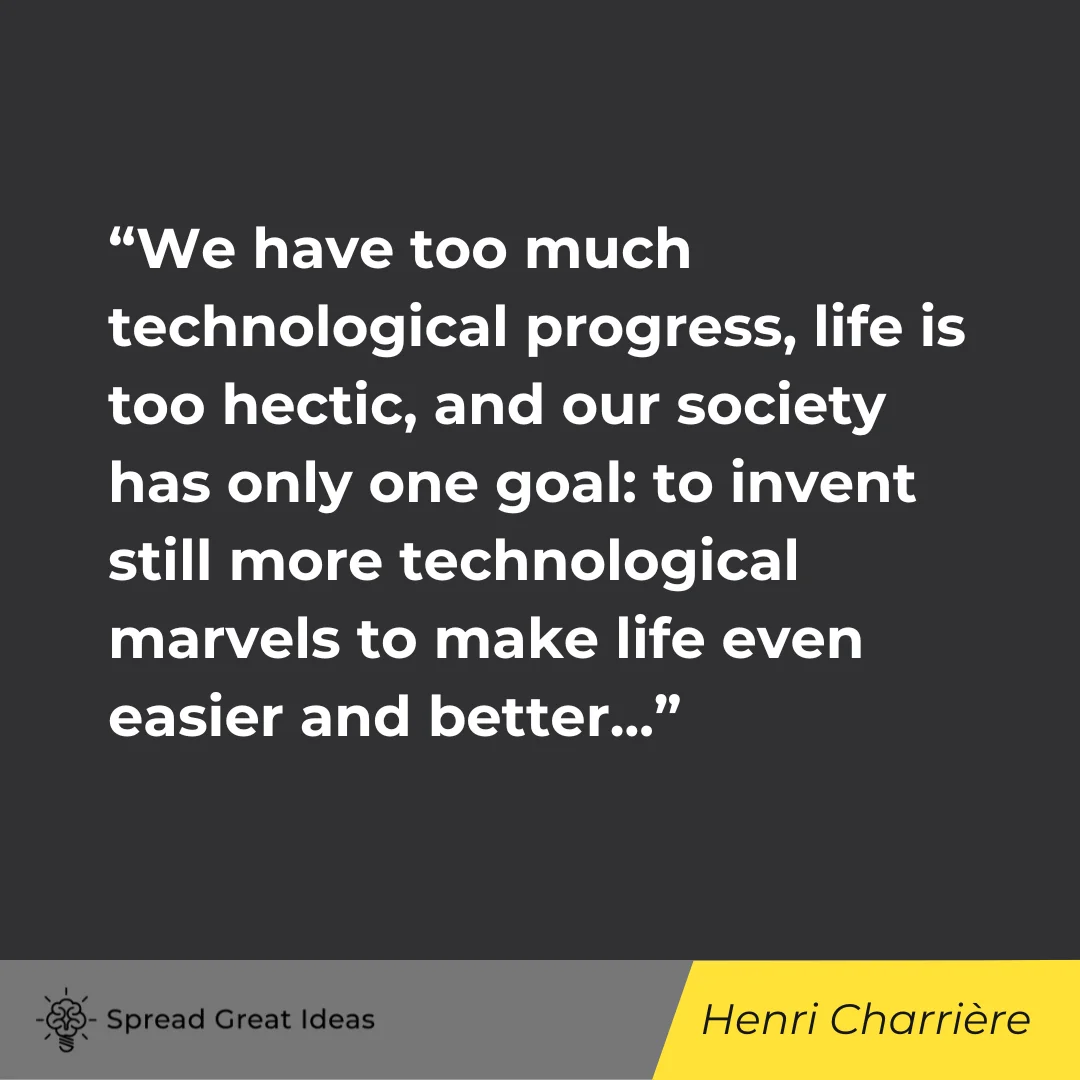
Isaac Asimov
“It seems to me, Golan, that the advance of civilization is nothing but an exercise in the limiting of privacy.”
– Isaac Asimov, Foundation’s Edge
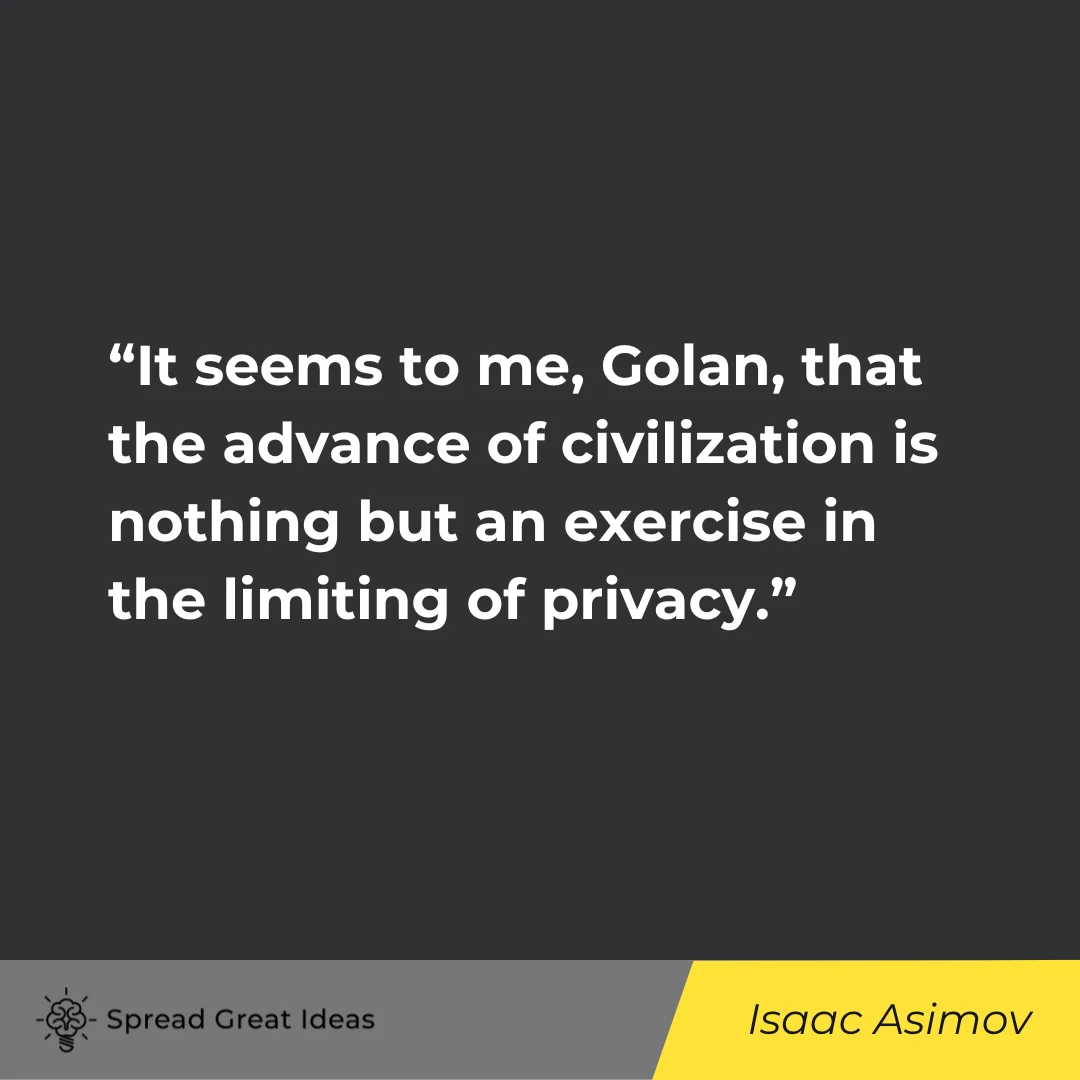
Dan Brown
“Even the technology that promises to unite us, divides us. Each of us is now electronically connected to the globe, and yet we feel utterly alone.”
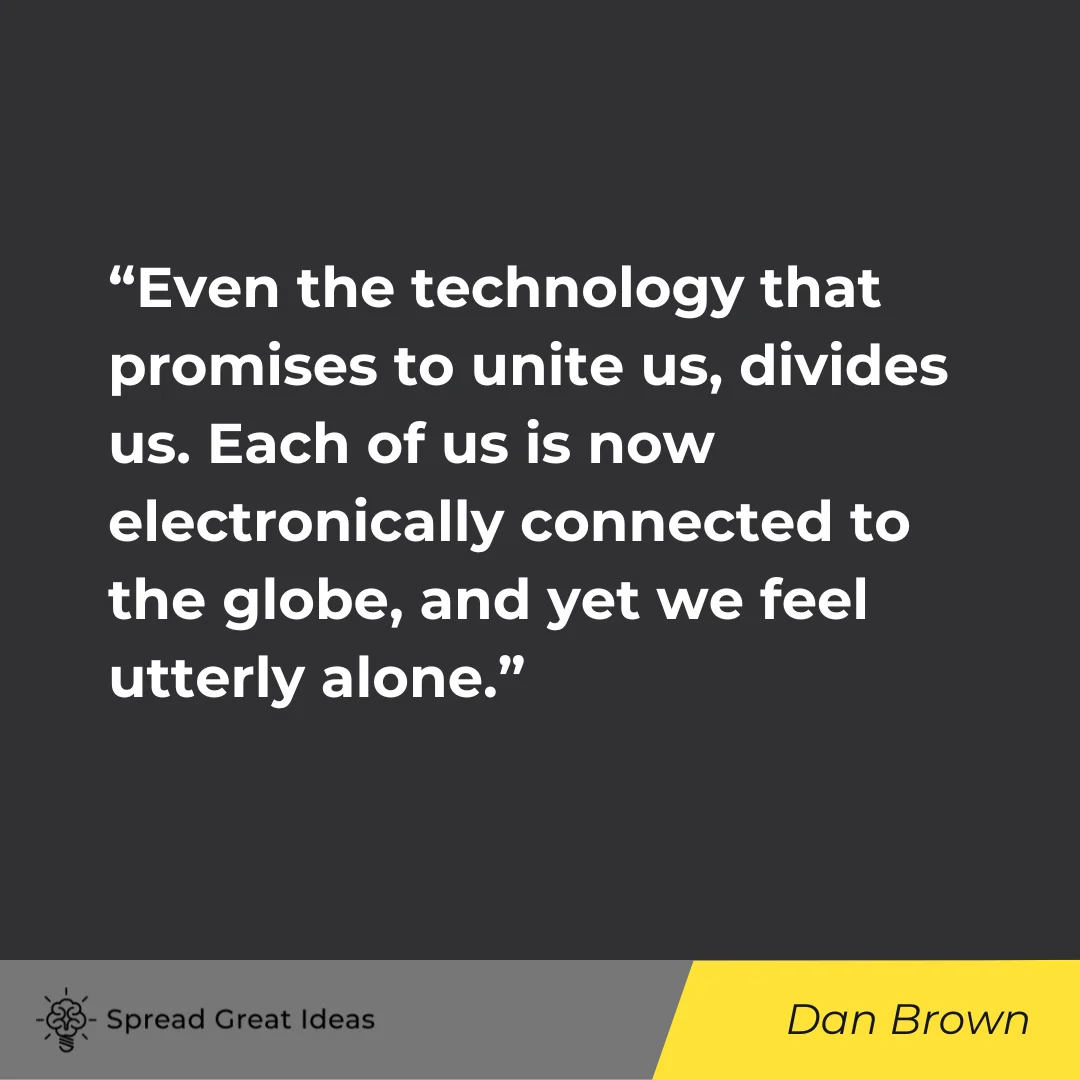
Martin Luther King Jr.
“We must work passionately and indefatigably to bridge the gulf between our scientific progress and our moral progress. One of the great problems of mankind is that we suffer from a poverty of the spirit which stands in glaring contrast to our scientific and technological abundance. The richer we have become materially, the poorer we have become morally and spiritually.”
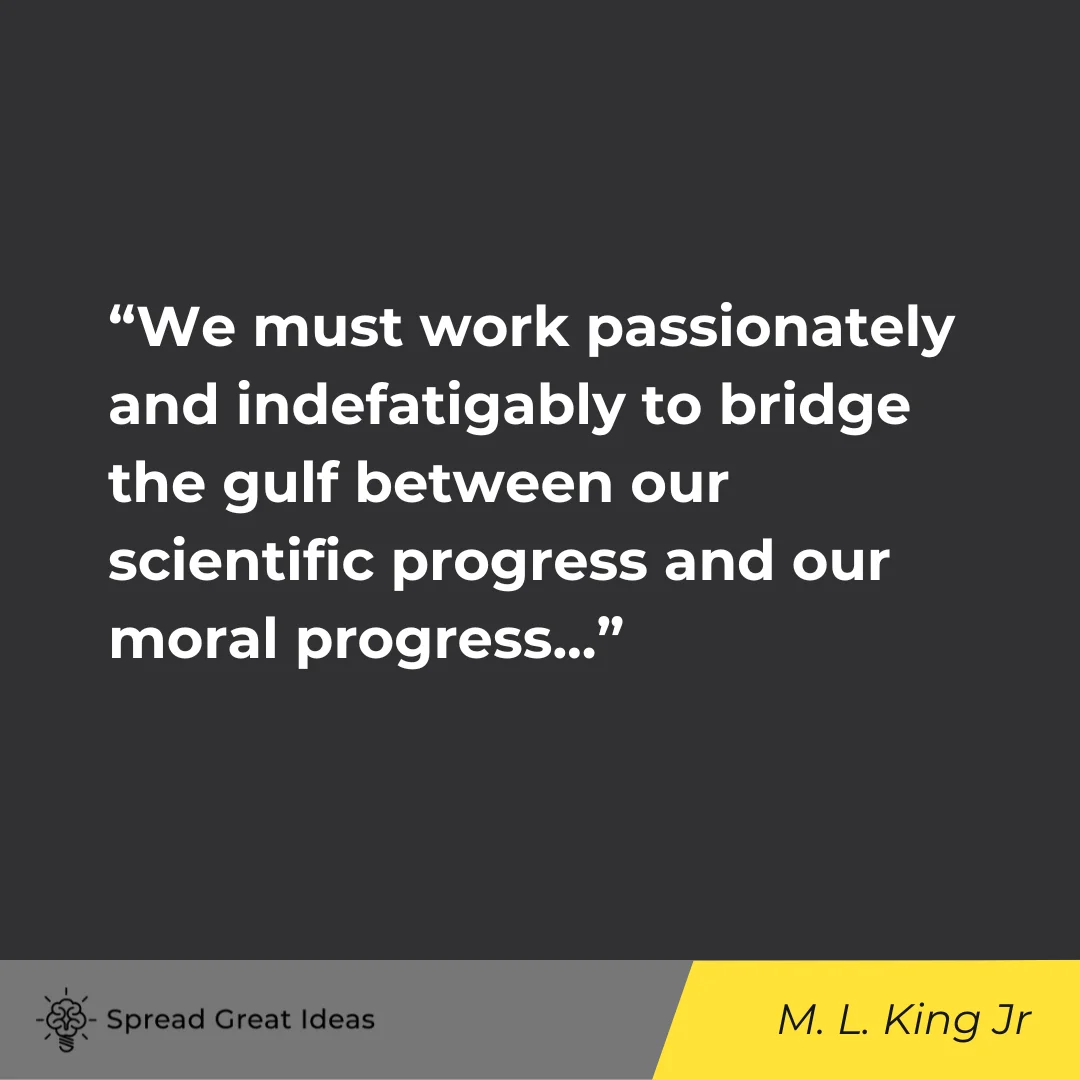
Ray Bradbury
“It didn’t come from the Government down. There was no dictum, no declaration, no censorship, to start with, no! Technology, mass exploitation, and minority pressure carried the trick, thank God.”
– Ray Bradbury, Fahrenheit 451
